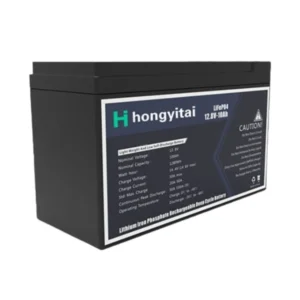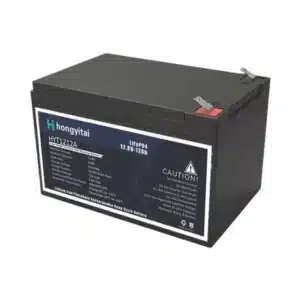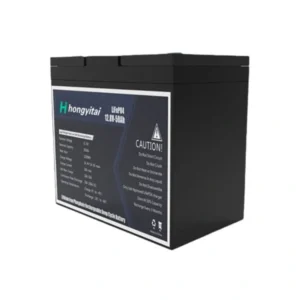Robot Battery
Robot batteries are critical components that optimize a robot’s performance and power supply. Different types of batteries are used in various robotic applications, each with unique characteristics and suitability.
Our batteries are suitable for autonomous mobile robots, competition robots, pool cleaning robots, cleaning robots, and industrial robots. We provide our customers with convenient and efficient battery solutions.
Currently, there are 5 main types of robot batteries: lithium-ion, lithium iron phosphate, lithium polymer, nickel-metal hydride, and lead-acid. As a professional lithium battery manufacturer, we support customization for various robotic applications.
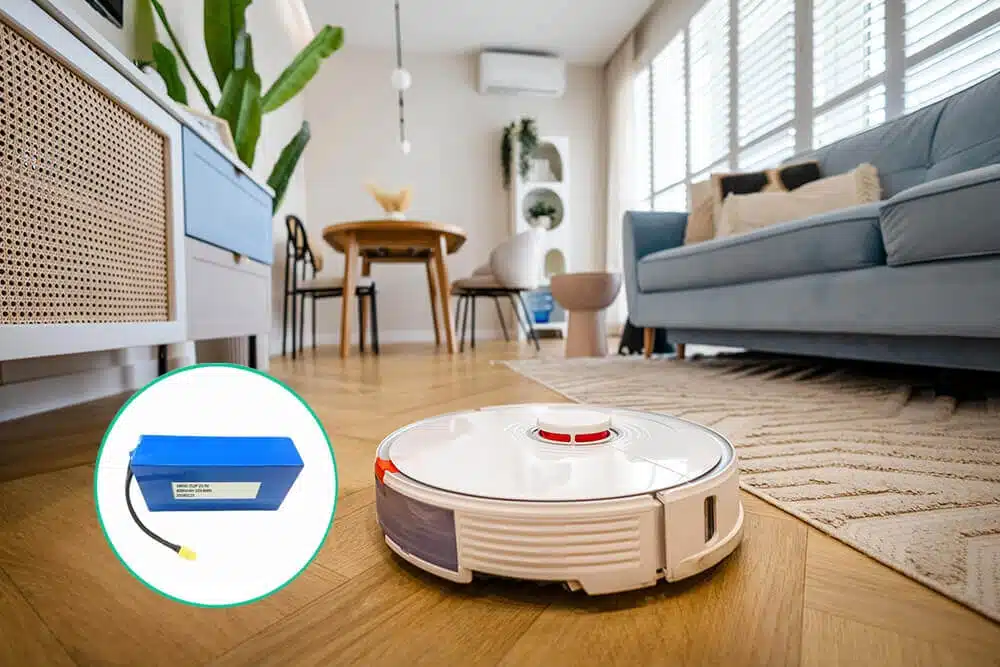
High energy density
They can store more energy in a smaller volume, making them ideal for robots requiring extended operation.
Small size and compact
Their lightweight and compact design meet the stringent space and weight requirements of modern robots.
Long cycle life
Lithium-ion batteries offer a long cycle life, capable of enduring hundreds to thousands of charge cycles.
High safety
Our lithium batteries are equipped with protection boards, featuring overcharge, over-discharge, and short-circuit protection to ensure long-term stable operation.
robot vacuum battery product
We produce 18650 robot batteries using premium-grade cells, like Sumsang, LG, Sony battery cell, all equipped with built-in protection boards for overcharge, over-discharge, and short-circuit protection. Beyond these standard products, we can customize lithium batteries to meet your specific robotic needs.
In addition to 18650 battery packs, we also provide lithium iron phosphate batteries tailored for robotics. These batteries offer high energy density, lightweight design, large capacity, high discharge current, and long cycle life.
- Cleaning Robot Battery
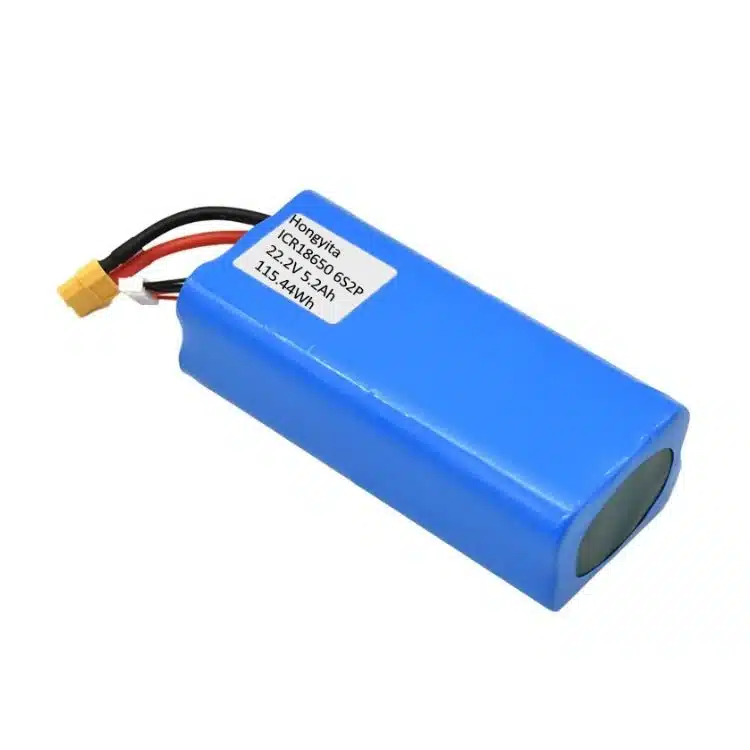
18650 6S2P 22.2V 5.2Ah Battery
Nominal voltage: 22.2V
Nominal capacity: 5Ah
Rated energy: 111Wh
Charge current: 1.0C rate
Discharge current: 3.0C rate
Thickness: ≤38mm
Width: ≤68mm
Length: ≤112.0mm
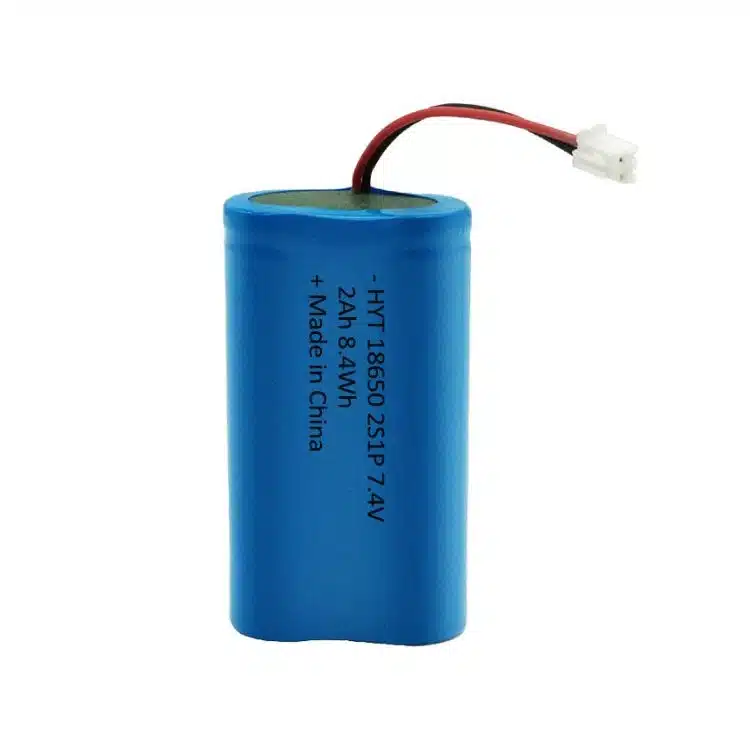
18650 2S1P 7.4V 2000mAh Battery
Nominal voltage: 7.4V
Nominal capacity: 2000mAh
Rated energy: 14.8Wh
Charge current: 1.0C rate
Discharge current: 3.0C rate
Thickness: ≤19.0mm
Width: ≤38.0mm
Length: ≤68.0mm
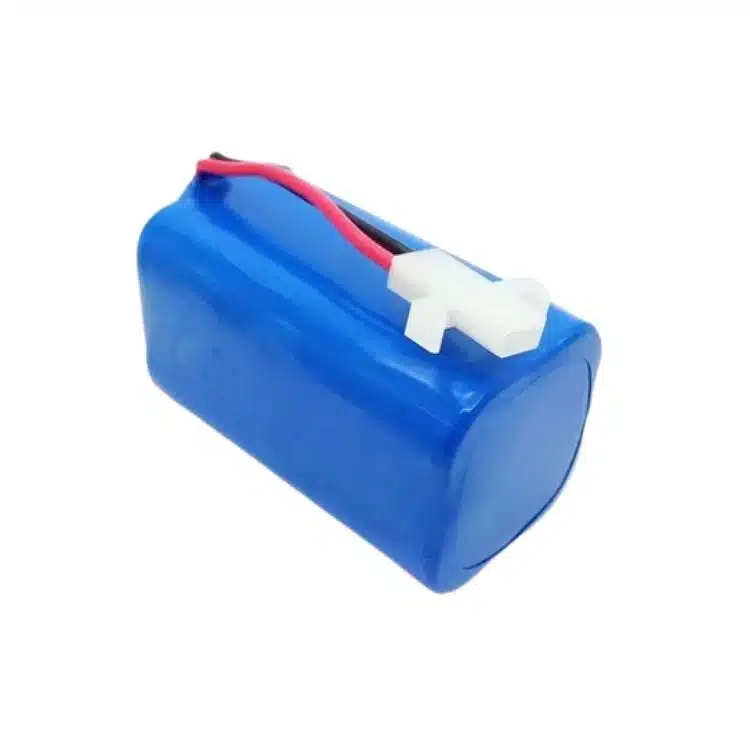
18650 2S2P 7.4V 4000mAh Battery
Nominal voltage: 7.4V
Nominal capacity: 4000mAh
Rated energy: 29.6Wh
Charge current: 1.0C rate
Discharge current: 3.0C rate
Thickness: ≤38.0mm
Width: ≤38.0mm
Length: ≤68.0mm
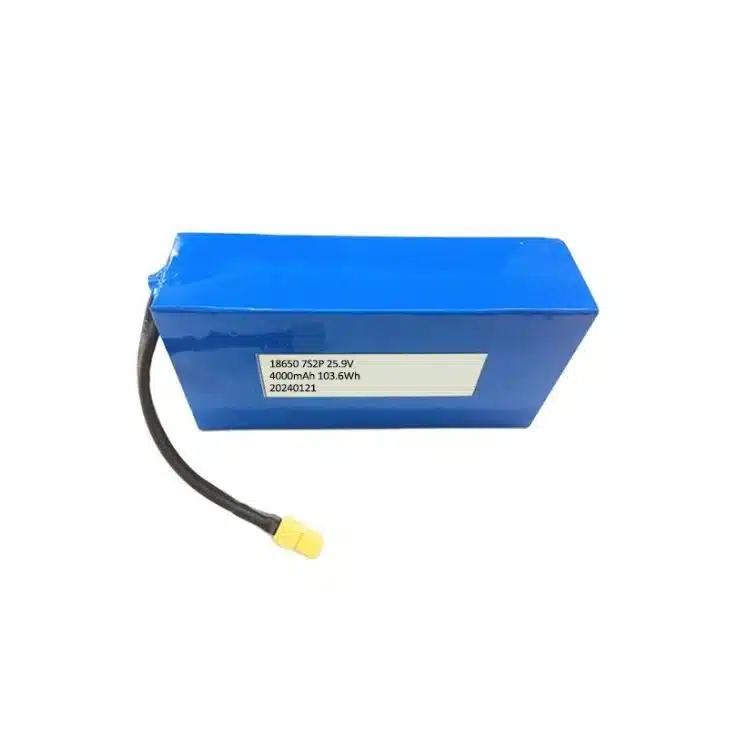
18650 7S2P 25.9V 4Ah Battery
Nominal voltage: 25.9V
Nominal capacity: 4Ah
Rated energy: 103.6Wh
Charge current: 1.0C rate
Discharge current: 3.0C rate
Thickness: ≤38mm
Width: ≤68mm
Length: ≤130.0mm

18650 2S3P 7.4V 6000mAh Battery
Nominal voltage: 7.4V
Nominal capacity: 6000mAh
Rated energy: 44.4Wh
Charge current: 1.0C rate
Discharge current: 2.0C rate
Thickness: ≤38mm
Diameter: ≤56mm
Length: ≤68.0mm
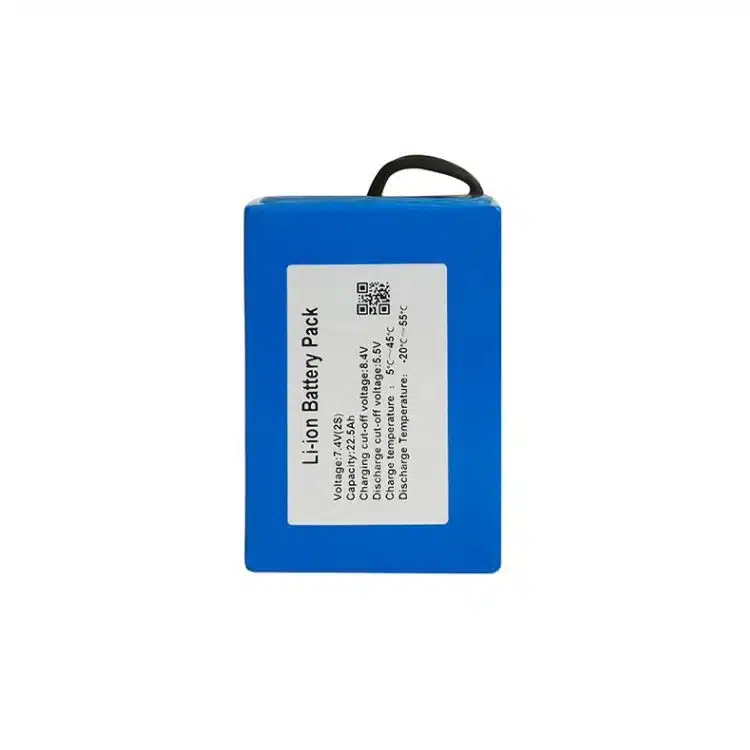
18650 2S9P 7.4V 22.5Ah Battery
Nominal voltage: 7.4V
Nominal capacity: 22.5Ah
Rated energy: 166.5Wh
Charge current: 1.0C rate
Discharge current: 2.0C rate
Thickness: ≤56mm
Width: ≤110mm
Length: ≤68.0mm
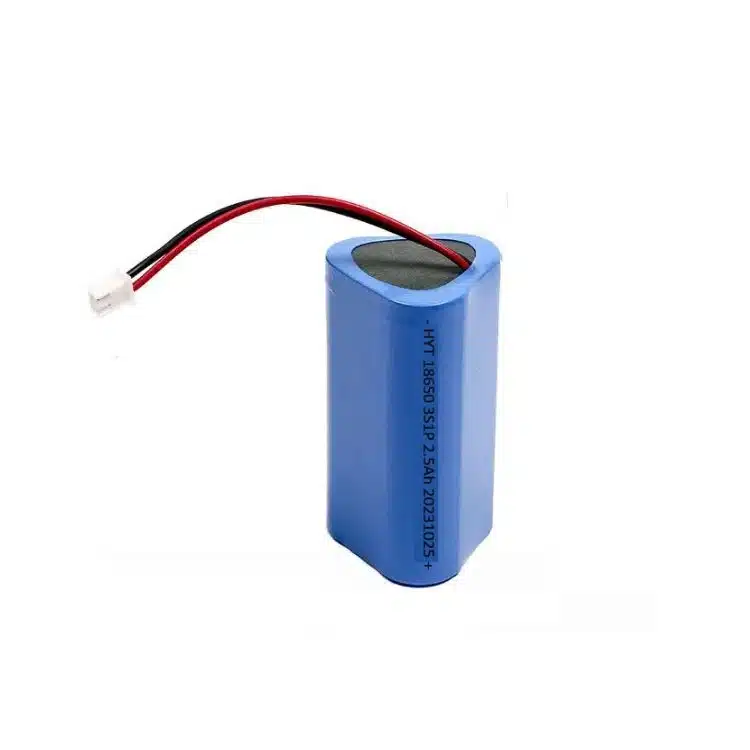
18650 3S1P 11.1V 2500mAh Battery
Nominal voltage: 11.1V
Nominal capacity: 2500mAh
Rated energy: 27.75Wh
Charge current: 1.0C rate
Discharge current: 3.0C rate
Thickness: ≤34.0mm
Width: ≤38.0mm
Length: ≤68.0mm
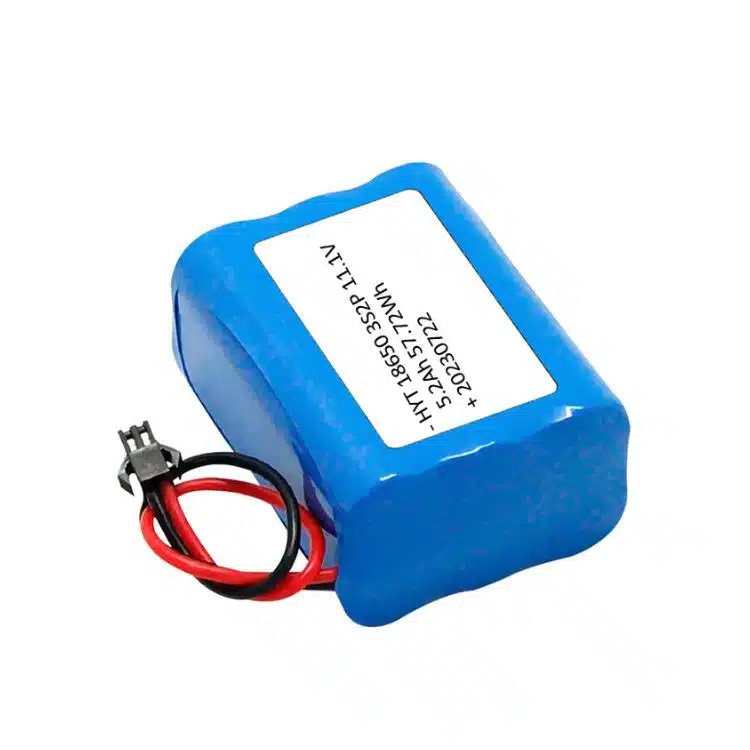
18650 3S2P 7.4V 5200mAh Battery
Nominal voltage: 11.1V
Nominal capacity: 5200mAh
Rated energy: 57.72Wh
Charge current: 1.0C rate
Discharge current: 1.0C rate
Thickness: ≤38.0mm
Width: ≤56.0mm
Length: ≤68.0mm
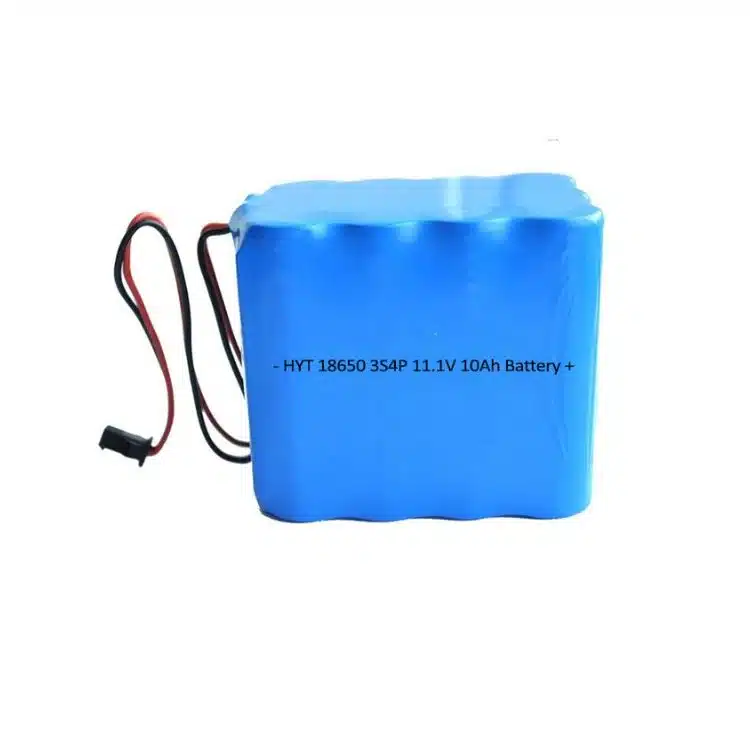
18650 3S4P 11.1V 10Ah Battery
Nominal voltage: 11.1V
Nominal capacity: 10Ah
Rated energy: 111Wh
Charge current: 1.0C rate
Discharge current: 2.0C rate
Thickness: ≤56mm
Width: ≤75mm
Length: ≤68.0mm
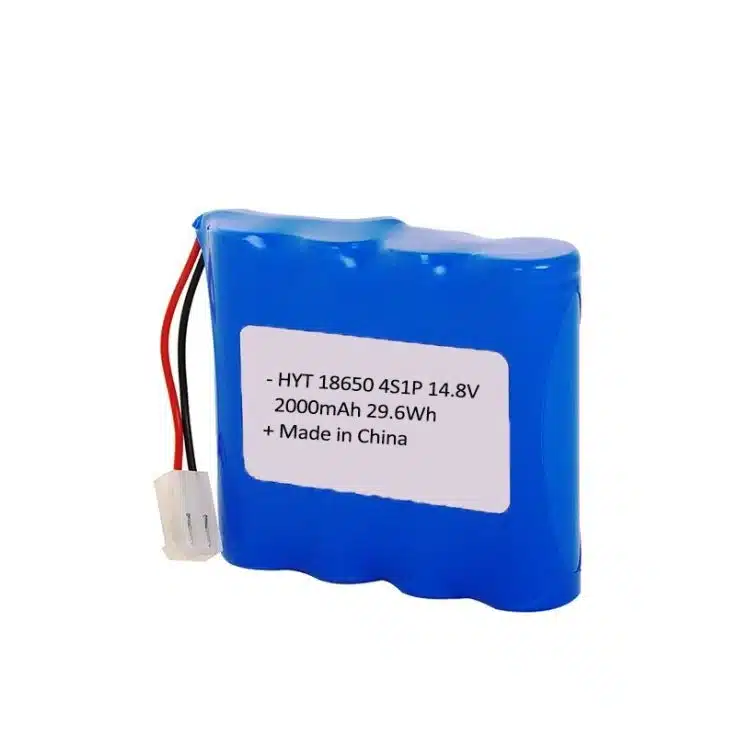
18650 4S1P 14.8V 2Ah Battery
Nominal voltage: 14.8V
Nominal capacity: 2Ah
Rated energy: 29.6Wh
Charge current: 1.0C rate
Discharge current: 3.0C rate
Thickness: ≤19mm
Width: ≤76mm
Length: ≤68.0mm
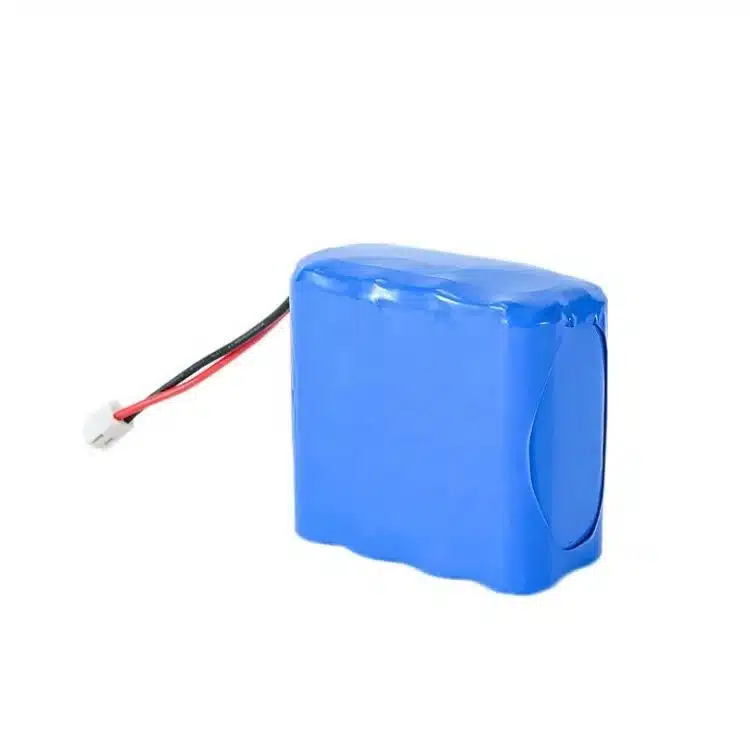
18650 4S2P 14.8V 4.h Battery
Nominal voltage: 14.8V
Nominal capacity: 4Ah
Rated energy: 59.2Wh
Charge current: 1.0C rate
Discharge current: 3.0C rate
Thickness: ≤38.0mm
Width: ≤76.0mm
Length: ≤68.0mm
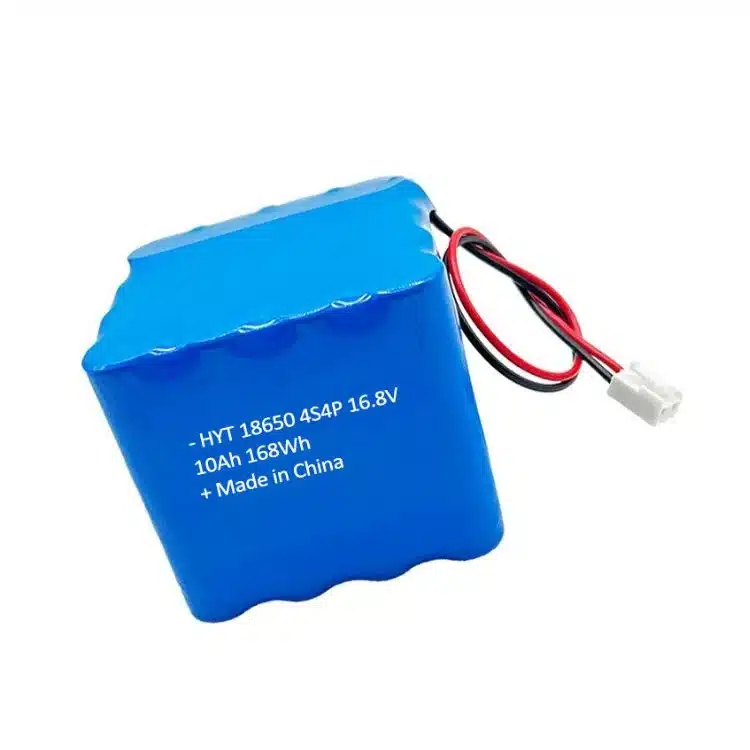
18650 4S4P 12.8V 10Ah Battery
Nominal voltage: 14.8V
Nominal capacity: 10Ah
Rated energy: 148Wh
Charge current: 1.0C rate
Discharge current: 1.0C rate
Thickness: ≤76.0mm
Width: ≤76.0mm
Length: ≤68.0mm
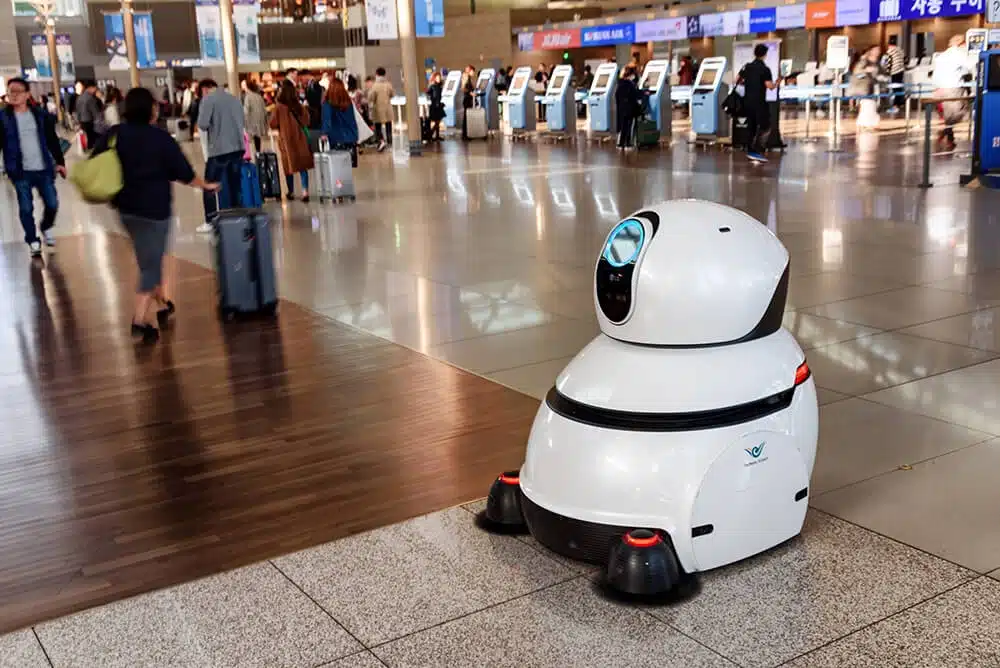
Vacuum robot battery features
High Energy Density: Lithium-ion batteries are renowned for their high energy density, allowing them to store more energy in a smaller space. This enables them to provide 60-120 minutes of cleaning or other operations on a single charge.
Long Cycle Life and Stability: Lithium-ion batteries typically offer 500+ charge-discharge cycles, a significant advantage for frequently used robots.
High Safety: Modern vacuum robot batteries are usually equipped with multiple safety features such as overcharge, overheat, and short-circuit protection. These features help ensure the battery’s safety during use, providing peace of mind for consumers.
Different battery for robot vacuum cleaner
When selecting a robot battery, different types offer distinct advantages and disadvantages. The four primary types of robotic batteries are lithium-ion, nickel-metal hydride, lead-acid, and lithium-iron phosphate. Please refer to the comparison table on the right. Choosing the appropriate battery type requires careful consideration of the specific application, performance requirements, and cost factors of the robot.
| Battery Type | Advantages | Disadvantages |
|---|---|---|
| Li-ion Battery | High energy density, lightweight, suitable for space-constrained applications. | Higher cost, relatively lower safety. |
| NiMH Battery | Affordable price, environmentally friendly and has no memory effect. | Lower energy density. Larger in size and weight. |
| LiFePO4 Battery | High safety. 6000+ cycle life. Can operate in a wide temperature range. | Lower energy density compared to lithium-ion batteries. |
| Lead-Acid Battery | Low cost. Durable and robust | Large size and heavy weight. Potential environmental hazards. |
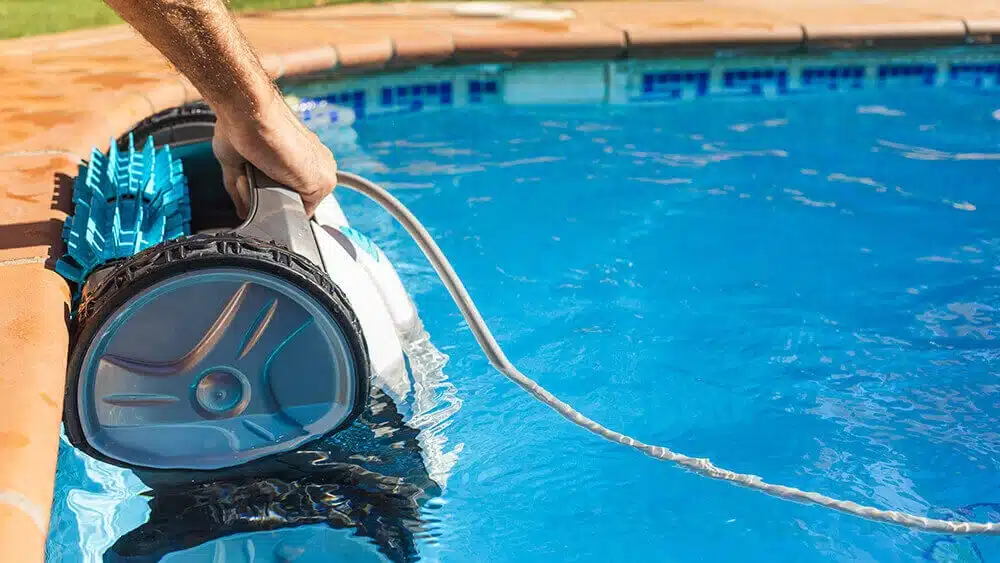
How to replace robot battery
Replacing a robot vacuum battery, such as the one in a Shark robot vacuum, involves a few simple steps. Here’s a general guide to help you through the process:
- Flip the Robot: Start by flipping the robot vacuum upside down to access the bottom.
- Remove the Bottom Cover: Loosen and remove the screws that hold the bottom cover in place.
- Lift Off the Bottom Cover: Carefully lift the bottom cover to expose the battery compartment.
- Remove the Old Battery: Press the release button on the battery and slide it out of the battery compartment.
- Insert the New Battery: Align the tabs on the new battery with the slots in the robot and firmly snap it into place.
- Reattach the Bottom Cover: Place the bottom cover back on and tighten the screws to secure it.
- Charge the Robot: Finally, place the robot on its charging dock to wake it up and ensure the new battery is working properly.
Ensure that the new battery is identical to the old one. For specific instructions or if you encounter any difficulties, it’s recommended to contact us for customer support for professional guidance before making replacement.
Why choose our lithium battery for battery powered robots
1. High Energy Density and Compact Design:
Our premium-grade lithium batteries offer exceptional energy density, providing long-lasting power in a compact footprint. This makes them ideal for robots that require lightweight and efficient power solutions.
2. Fast Charging and Long Cycle Life:
Our lithium batteries support rapid charging, minimizing robot downtime. Additionally, they boast a long cycle life, capable of withstanding numerous charge-discharge cycles, reducing replacement frequency and saving costs.
3. Safety and Reliability:
Equipped with advanced battery management systems, our batteries offer multiple safety protections, including overcharge and short-circuit protection, ensuring safe and reliable operation.
4. Customized Solutions:
We provide tailored battery solutions to meet the specific needs of various robotic applications, optimizing performance and runtime.
5. Comprehensive Services:
As a professional lithium battery manufacturing facility in China, we offer a full range of services, from robot battery assessment, prototyping, small-batch verification, certification, to large-scale delivery and after-sales support.
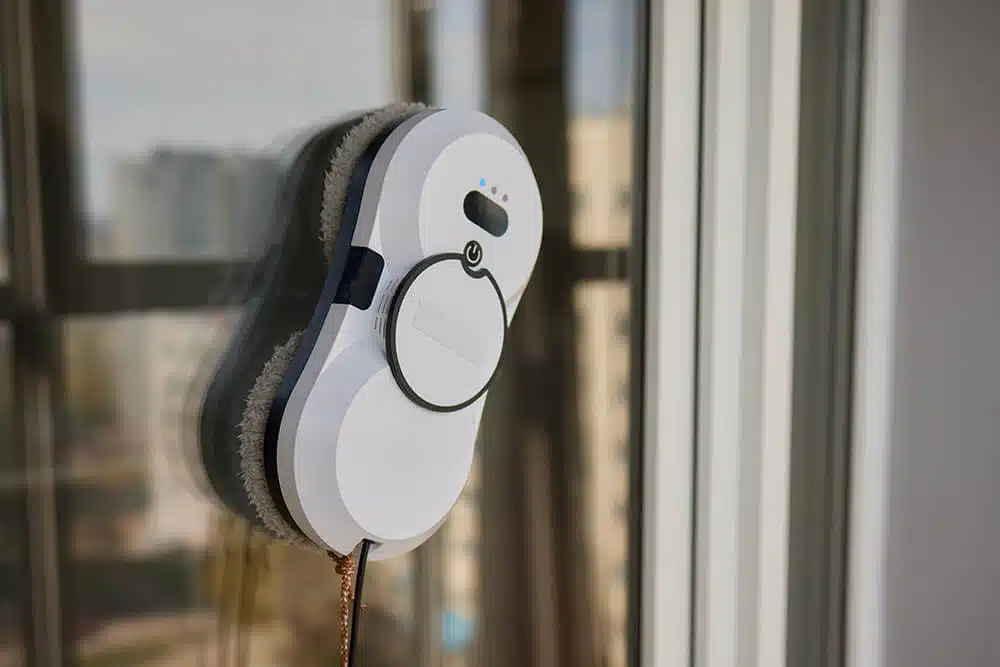
FAQs for best batteries for robots
Lithium-ion batteries are often considered the best choice for robots due to their high energy density, long lifespan, and lightweight design, making them ideal for compact and mobile applications.
When selecting a battery, factors such as power requirements, size and weight constraints, durability, safety, and budget should be considered to ensure it meets your robotic needs.
Robot vacuum cleaner batteries typically provide between 60 and 120 minutes of operating time per charge, depending on the battery type and capacity. Lithium iron phosphate (LFP) batteries generally offer longer runtimes and more charge cycles.
